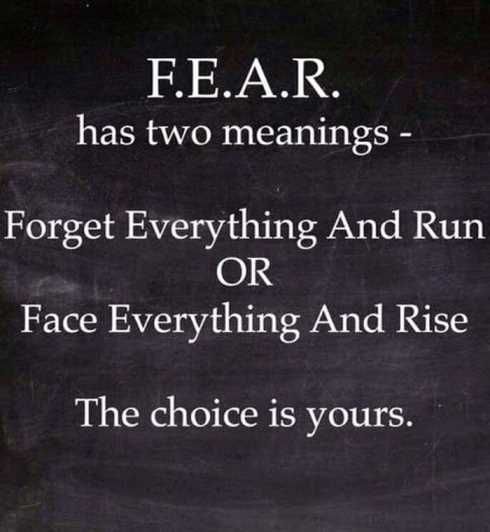
by James Burns | Feb 18, 2018 | Anti Bullying Coaching and Resources, Bully Proof Classroom
What is the definition of the word “worry”? Any thoughts? Worry occurs when we assume a responsibility that we were never meant to have. How often do we worry about things that are just out of our control? I do it all the time. But, what responsibilities are ours and ours alone? We are all responsible for out thoughts, words, actions, attitudes, and motives. As teachers, we need to teach our kids about these areas. For the next five sections I will be sharing tips on how to teach these responsibilities to our students. We teach in two ways: through direct instruction and by example. How can I be an example for my students to help them to always evaluate their thoughts? Instead of asking them “What were you thinking?” after a bullying event, ask them daily “What do you have on your mind today?” Begin an open dialogue with your students. A technique I really like that I learned from Dr. Allen Mendler, author of Discipline with Dignity is called the 2X10 exercise. Take a student that is a known bully and have a 2–minute conversation with him as you would with a friend. Ask a question or two about other classes that the student is in, or maybe discuss a sports team you know that he/she is interested in. Do this for 10 days straight. What will happen around the eighth day is that the student will come to you for the conversation. You can then begin to peek into the thought life of this student. You may make a new friend.
[ecwid_product id=”117206200″ display=”picture title price options addtobag” version=”2″ show_border=”1″ show_price_on_button=”1″ center_align=”1″]
by James Burns | Feb 4, 2018 | Anti Bullying Coaching and Resources, James Burns, Teachers, The Bully Proof Classroom

Often times when we hear things or see things that require us to take action, we become fearful and can often rationalize it away. This can be done by convincing ourselves that it is not as serious as we thought, the kids were only kidding, or worse yet, act like we never saw it or heard it. Years ago, teachers used to quake in fear at the thought of reporting a case of child abuse to the authorities. As an administrator, I was often asked to make the phone call by a teacher. I did on one occasion and was told that the person who observed the abuse or heard about it needed to make the report. With the emphasis placed so heavily right now on anti-bullying, it is critical for teachers to understand their resources when dealing with an incident of bullying. Teachers are the first responders and are in the trench observing students on a daily basis. If you hear or see what you believe is a bullying incident, know who to go to for help. An administrator or guidance counselor is a good place to start. In doing this, you will never be alone in the ownership process. You will always have full ownership if you don’t report it at all.
by James Burns | Jan 27, 2018 | Anti Bullying Coaching and Resources, Bully Proof Classroom, James Burns

Independent people know how to do things on their own, and interdependent people know how to do things with the help of other people. Emotion-ally mature people know how to do both. They can function on their own but still understand that other people can be used as resources to help them solve some of life’s problems.
Parents are always concerned about sending their children off to live on their own. They start to worry around the time that their children get ready to go off to college. The biggest reason for the concern is because, in the parent’s’ minds, they feel that they didn’t teach their children enough to survive independent of them. The parents may have the desire to speak frequently on the phone with their children questioning them about their activities, their grades, who they’re hanging around with and even if they’re doing their school work.
This constant questioning is directly related to the parents’ uneasy feelings that they have about their children living away from home. This constant questioning will often be interpreted by the children as meddling and can even put a strain on their relationship with their parents. They may become so annoyed by their parents that they dread any conversation, and when they do talk to their parents it is only out of a basic obligation they believe they have.
Emotionally mature people understand the power of a positive relationship with their parents. People who are emotionally mature realize that they were once dependent on their parents for their care and for their needs. They want to become independent of their parents when they are teenagers and may end up in a few battles with their parents in their efforts to achieve a certain amount of independence. When they move into their late teens and early twenties, they realize that their parents are a powerful resource in their lives and that they still need their parents’ help to manage their lives as young adults. They talk to their parents frequently, ask their advice and work to involve them with the raising of their children. Emotionally mature people realize that the relationship that they have with their parents is really the first and probably the most important interdependent relationship that they will have in their lives.
In reality, the quality of the relationship that a person has with his or her parents will affect the quality of every other relationship that he or she will have in the future. In my case, I always had a problem dealing with my mother and couldn’t wait to get married so I could move out of my house to get away from her.
I was married when I was twenty four years old. I left my home and discovered that I was physically free and living an independent life on my own. The problem was that I wasn’t free emotionally. The inability on my part to form an interdependent relationship with my mother (my father had already passed away) left me riddled with guilt. That guilt affected every other relationship in my life. I never felt the freedom to ask my mother for help with anything, financial or otherwise. This attitude of mine of needing to do everything on my own and not needing people, including my mother, was not the very best for me.
In order to operate independently and interdependently, it is absolutely necessary to develop a positive relationship with our parent’s. Our parents should be our first and our best resource to help us understand how to work in an interdependent relationship. There are about seven billion people on the planet so the chances are really good that we will all be around people for the rest of our life. Some of these people will have personalities similar to our parents.
In order to work with others, a person has to learn how to work with the first two people in their life, their parents. There is no denying that our relationship with our parents is the first and most important interdependent relationship that a person will ever have.
by James Burns | Jan 17, 2018 | Anti Bullying Coaching and Resources, Behavior Management, Bully Proof Classroom, Teachers
I have always enjoyed watching Court TV. I like watching because I love listening to the defense arguments. I enjoy listening to how the attorney for the defense can come up with all kinds of excuses to explain why the person on trial committed the crime. The defendant could even have confessed to the crime, and the defense attorney will still find some circumstance that caused the person to commit the crime, in essence to excuse the crime. I was watching once and there was a 15 year old kid named Brian Pittman on trial for killing his grandparents two years earlier. This young man shot his grandparents in their sleep at close range with a shotgun, put the leash on the dog, walked out of the trailer that they lived in, doused the trailer with gasoline, lit the trailer on fire, and got in a pick-up truck and drove away. The trial went on for weeks, and I watched most of it. The defense attorney was running out of ammunition so he decided to play a card that is becoming a very common excuse for deviant behavior. The defense attorney contended that the reason that this boy committed this heinous crime was because he had an adverse reaction to Zoloft, an anti-depressant drug that he was taking at the time. I sat on the edge of my seat as I waited for the verdict. I was thinking that if a person can be found innocent for murder because of a medication issue, anyone can get away with anything.
I am amazed how family, environment, genetics, and medication can be used as an excuse for behavior in society today. Once these factors are considered the cause of deviant behavior, the person who committed the crime or behaved inappropriately will not be held responsible. It follows then that they should be excused for these behaviors, in other words, not be held accountable. Ultimately, people should be held accountable for their actions, and consequences must be imposed. Consequences are the only thing that will stop negative or deviant behaviors such as talking back, not completing homework, bullying, lying, speeding, sexual harassment on the job, stealing, rape, and murder.
Today, in society, we have reached the point where as soon as parents have trouble managing their child’s behavior or the school makes them aware their child is acting inappropriately in school; parents are all to ready to conclude that these behaviors are caused by ADHD or a teacher with unrealistic expectations or another child. Parents today rarely think of holding themselves responsible, of asking themselves, where am I going wrong here and what do I need to change? Or I need to hold my child responsible, so what consequences will I impose? It’s so much easier to blame the school, a teacher, an administrator, a guidance counselor, another student, or a medical condition. In schools, teachers blame students’ poor behavior or poor academic performance on a child’s difficult circumstances at home, or on the fact that the child’s parents will not put the child on medication. In society, if a person commits a crime that is punishable, the defense attorney will try to convince a jury that the person is mentally ill or comes from a pitiful family background and should not be held responsible.
As a school administrator I have observed deviant behavior, and believe me I have done my best to hold students accountable. I didn’t just look at the student’s isolated behavior at the time, but I considered what would happen if the behavior continued, and how it would affect the student’s chances for success as an adult. I was working as a principal of a school for clinically disturbed students in 1993, and most of the students were depressed, psychotic, and were on medication. When I took over the school there was no system of accountability so I instituted an In-School Suspension program that was used as a means of keeping students in the school for offenses that they would otherwise be suspended for. One morning a student came into school late and proceeded to kick out a window, punch a teacher, tear down hallway decorations and bulletin boards, and was screaming so loud he could be heard in the next county. He was brought into my office, and I said to him, “Nick (name change) I don’t know what I am going to do with you, but for now take a seat in In School Suspension. About five minutes later his school therapist walked into my office. She was furious. She said, “You have Nick in In School Suspension?” I said, “Yes, have you taken a look what he did to my building?” She then said, “Did you know that Nick didn’t have any breakfast this morning?.” I said, “I haven’t had any coffee yet but I’m still talking to you.” I then asked her to leave the office. Did it really matter that Nick didn’t have breakfast? Of course not. What really mattered was that if Nick were not disciplined for his inappropriate behaviors, he would most definitely repeat the behavior again.
I thought about what I was going to do with this student. I knew that I would suspend him for sure, but I also knew that I had to begin to work on developing a relationship with Nick so that he wouldn’t react this way again. About 10:30 in the morning I walked down to In School Suspension and brought Nick a bagel and an orange juice. I told Nick that he should have breakfast before he comes to school, but if he didn’t, he should come into my office, and I would get him something to eat. Nick was also suspended for 10 days, police charges were filed, and he had to write a letter of apology. Had there been a reason for his unreasonable behavior? He had a reason, but having a reason wasn’t an excuse for what he did. If I had bought in to excusing his behavior because he was hungry, Nick would have gotten away with what he did. But I didn’t, I imposed a consequence.
There are plenty of reasons for people’s behaviors; but those reasons are not excuses. What I showed Nick was that there are rules and regulations that have to be followed, but I also showed him some compassion and understanding. I imposed the consequence, but still made sure he had something to eat. I believe that this is the missing piece in dealing with deviant behavior. We are too compassionate and understanding, and we lose sight of the fact that everyone must follow the rules of a family, a school, a job, and society. If we continue to allow everything under the sun to be excused, and we decide that consequences are for the birds, then we can expect our problems with inappropriate behavior in school and deviant behavior in society will continue to get worse.
by James Burns | Jan 17, 2018 | Anti Bullying Coaching and Resources, Anti Bullying Tips

These cards are designed to be downloaded, cut out and laminated. They are extremely useful in helping elementary and middle school students develop the language to deal with bully’s who use their words to hurt or embarrass others. They also provide students with positive self talk statements that help to improve the victims self esteem and confidence. Once these cards are produced they can be given to multiple students and placed in a folder or punched and placed in a binder. They are an excellent tool to help deal with individual fears that occur because of a bully’s harassment and intimidation.









